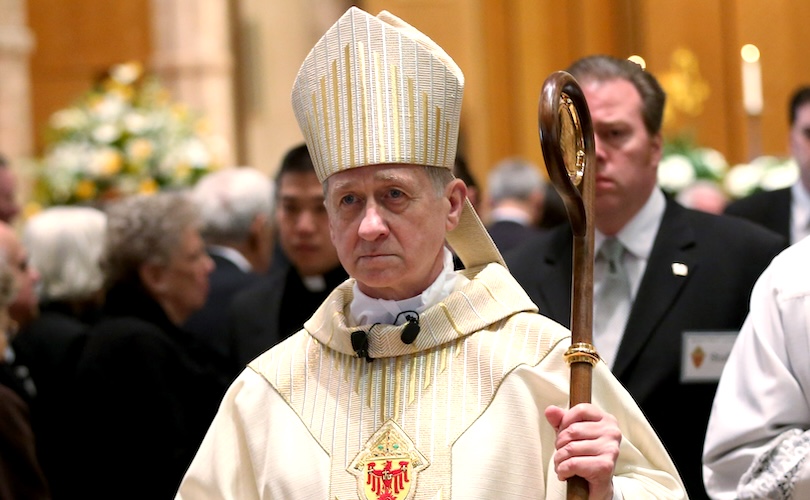Bishop Cupich Honors Senator Durbin: A Biblical Warning
Bishop Cupich’s decision to honor Senator Dick Durbin has stirred sharp reactions among faithful bishops and concerned Catholics. The controversy centers on honoring a public figure who openly supports aggressive abortion policies and a cultural agenda that undermines biblical marriage and sexual ethics. This moment calls the Church to sober reflection about public witness and pastoral responsibility.
From a clear biblical viewpoint, leaders in the Church are called to uphold truth and holiness, not to celebrate power or political convenience. Scripture urges shepherds to feed the flock, to protect the weakest, and to call sin what it is. When a shepherd appears to bless policies that destroy unborn life and reshape sexual norms, the faithful will rightly cry out for clarity and courage.
Honoring someone who champions unrestricted abortion and radical sexual ideology sends a confusing signal to laypeople trying to follow Christ. The people of God deserve leaders who will name evil plainly, stand for the vulnerable, and urge conversion rather than accommodation. Public ceremonies carry weight; they shape belief and form consciences.
Public witness matters because the Church is meant to be a lighthouse, not a mirror of the surrounding culture. When church leaders appear to align with policies that contradict the Gospel, outsiders and insiders alike can be misled about the Church’s identity and mission. Confusion breeds compromise and weakens the prophetic voice the world desperately needs.
There is a pastoral cost to silence or ambiguous gestures of honor when clear moral lines are crossed. The faithful expect bishops to provide moral formation rooted in Scripture and tradition, and to offer corrective love to both laity and public officials. Avoiding candid moral teaching under the guise of civility is not charity; it is a failure of leadership.
Accountability is also biblical. The New Testament models confrontation motivated by love, aimed at restoration and repentance. If clergy honor leaders whose public actions offend conscience, then faithful Catholics must ask whether the honor endorses those actions or is an attempt at bridge-building that sadly misreads its own effect. Intent does not erase impact.
Political realities are messy, but the Church’s moral compass must remain fixed on Christ and His Word. The temptation to forge comfortable public relationships with influential figures is old and tempting, yet Scripture warns against the seductions of power and the danger of compromising truth for influence. Christian witness is most credible when it is costly.
So what should faithful Catholics do in response to moments like this? Pray earnestly for their bishops and civil leaders, asking the Lord to grant wisdom, humility, and repentance where needed. Speak the truth in charity: write, meet in parish forums, and respectfully request pastoral clarity and stronger prophetic teaching.
Laypeople should also support priests and bishops who defend life and biblical marriage, and work together to form consciences in homes and parishes. Build networks of charity that serve women in crisis pregnancies, educate children in sexual morality rooted in human dignity, and publicly uphold a culture of life. Action grounded in prayer strengthens witness.
Ultimately, the Church is called to be faithful, not fashionable. When leaders honor those who oppose Gospel teachings, the faithful must gently but firmly call for repentance and reformation rooted in Scripture. The path forward is not petty politics but patient, persistent fidelity to the Lord who commands us to love God and neighbor without lowering the bar of truth.

